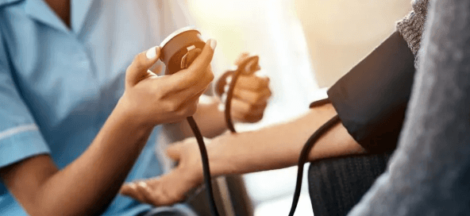The practice of treating one’s own health issues without professional guidance, can have serious adverse effects on one’s health. Firstly, it often leads to misdiagnosis, as individuals lack the expertise to accurately identify underlying health conditions. This can result in delayed or incorrect treatment, allowing the condition to worsen.
Furthermore, self-medication can lead to inappropriate drug selection and dosage, potentially causing adverse drug interactions or harmful side effects. Overuse or misuse of antibiotics, painkillers, or other medications can contribute to drug resistance and long-term health problems.
Additionally, self-medication may mask symptoms of a more severe illness, preventing timely intervention. It can also undermine trust in healthcare professionals and hinder access to proper medical care when necessary.
Self-medication carries significant risks, including misdiagnosis, drug-related issues, and delayed treatment, which can all harm your overall health. It is crucial to consult a qualified healthcare provider for proper diagnosis and treatment to ensure your well-being.
Below are some reasons why you should never opt for self-medication and always concern a health specialist.
Misdiagnosis and Delayed Treatment
Self-medication poses a significant risk of misdiagnosis, primarily because individuals lack the necessary medical training and diagnostic expertise. When people attempt to identify and treat their health issues without consulting a healthcare professional, they may misinterpret their symptoms. This misinterpretation can lead to a misguided choice of medication or treatment, addressing the wrong health problem or failing to address the actual issue altogether. For example, what might seem like a common headache could actually be a symptom of a more serious condition, such as a migraine, sinusitis, or even high blood pressure. Without a proper diagnosis, individuals might use over-the-counter pain relievers that provide temporary relief but don’t address the underlying cause. Consequently, the underlying health issue remains untreated and may worsen over time.
Moreover, delayed treatment is a concerning consequence of self-medication. When individuals delay seeking professional medical advice or intervention, they allow their health problems to progress unchecked. This delay can have serious repercussions, as many medical conditions are more manageable and treatable in their early stages. For instance, an individual with a persistent cough might believe it’s a minor cold and opt for self-medication with over-the-counter cough syrup. However, this cough could be a symptom of a more severe respiratory infection or a chronic lung condition. If the underlying issue goes undiagnosed and untreated, it may lead to complications, such as pneumonia or exacerbation of a chronic lung disease. In such cases, what could have been managed with early medical intervention may escalate into a more severe health crisis.
Inadequate Dosage and Adverse Reactions
As I write my essay UK I realize that determining the correct dosage of a medication is a complex process that takes into account various factors, including an individual’s age, weight, medical history, and the specific condition being treated. When individuals self-medicate, they often lack the knowledge and tools to accurately calculate the appropriate dosage for their unique circumstances. Consequently, they may guess at the dosage, which can result in two significant problems.
Firstly, inadequate dosage can render a medication ineffective. If a person takes too little of a medication, it may not have the intended therapeutic effect, leading to prolonged suffering and potentially allowing the underlying health issue to worsen. For example, someone with a bacterial infection who takes less than the recommended antibiotic dosage may not fully eradicate the infection, leading to antibiotic resistance and the persistence of the illness.
Secondly, self-medication can lead to overdose when individuals mistakenly take too much of a medication. Overdosing can have serious health consequences, ranging from discomfort and side effects to life-threatening reactions. This is particularly risky with medications that have a narrow therapeutic window, where the difference between a therapeutic dose and a toxic dose is minimal. Furthermore, some medications may interact negatively with each other or exacerbate existing health conditions, causing adverse reactions. These interactions can be challenging to predict without professional oversight and can lead to unforeseen complications, such as allergic reactions, organ damage, or severe side effects.
Risk of Addiction
One of the gravest dangers associated with self-medication is the risk of addiction to certain over-the-counter and prescription medications. Many substances, such as painkillers (opioids), sedatives, and sleep aids, have a high potential for addiction. When individuals self-medicate, they often do so without a complete understanding of the risks involved. They may unknowingly misuse these substances, either by taking them in higher doses or for longer durations than recommended, which significantly increases the likelihood of developing a dependence.
Addiction can be a vicious cycle, as the more an individual relies on a particular medication to alleviate symptoms or cope with stress, the stronger the psychological and physical dependence becomes. Breaking free from addiction is often a challenging and painful process that may require professional intervention, counseling, and rehabilitation. Healthcare providers play a crucial role in preventing addiction by prescribing alternative treatments when possible, closely monitoring the use of potentially addictive medications, and educating patients about the risks associated with these substances. By seeking medical guidance, individuals can better navigate the complex landscape of medication use and avoid the perilous path of addiction.
Masking Underlying Issues
Self-medication, while providing temporary relief from symptoms, frequently fails to address the root cause of a health problem. It acts as a Band-Aid, effectively masking symptoms without treating the underlying condition. This can have serious consequences, as individuals may inadvertently allow potentially severe health issues to progress unchecked.
For example, as stated by experts from Dissertation Assistance, someone experiencing chronic pain might opt to self-medicate with pain relievers to manage their discomfort. However, the pain itself may be a symptom of an underlying medical condition that requires professional diagnosis and treatment, such as arthritis or nerve damage. By merely alleviating the pain temporarily, the individual might delay the identification and management of the actual health problem. Over time, this can lead to the worsening of the underlying condition and the development of complications that could have been prevented or mitigated with timely medical intervention.
To ensure that health issues are adequately addressed, it is essential to consult with healthcare providers who can conduct thorough evaluations, perform diagnostic tests, and recommend appropriate treatments. By uncovering and treating the root causes of health problems, rather than merely masking symptoms, individuals can achieve more effective and long-lasting solutions to their health concerns.
Legal Consequences
Self-medication, particularly with prescription medications that are not prescribed to the individual, carries significant legal risks and consequences. Using or sharing someone else’s prescription medications is considered drug diversion, which is illegal in most jurisdictions. The legal repercussions of such actions can be severe, including fines, loss of professional licenses, and imprisonment.
Furthermore, obtaining prescription medications without a valid prescription from a licensed healthcare provider is against the law in many countries. Even the possession of certain controlled substances without a prescription can lead to criminal charges. It’s crucial for individuals to prioritize legal and ethical considerations when it comes to their health and medication use. Instead of resorting to self-medication with prescription medications, it is advisable to consult with a healthcare provider to receive proper evaluation, diagnosis, and treatment options. This not only ensures compliance with the law but also promotes safer and more effective healthcare practices.
The Role of Healthcare Providers in Your Well-Being
Healthcare providers are your essential allies in maintaining good health. Their expertise, training, and experience are invaluable in avoiding the risks associated with self-medication. They possess the knowledge and tools to accurately diagnose conditions, differentiate between minor issues and serious ailments, and create personalized treatment plans tailored to your unique health profile.
Healthcare professionals also consider your complete medical history, helping to prevent adverse reactions and ensuring that any prescribed treatments align with your specific health needs. Their guidance on medication dosage and potential addiction risks ensures a safer and more effective approach to managing your health.
In addition, healthcare providers excel in unmasking underlying health concerns. By thoroughly evaluating your symptoms and conducting necessary tests, they can identify and address the root causes of your health problems, preventing further complications.
Lastly, seeking professional medical advice upholds ethical and legal standards. It ensures that you use medications and treatments in compliance with prescribed guidelines, avoiding the serious legal consequences associated with self-medication.
While Summing Up…
While self-medication might seem like a quick and convenient solution for minor health concerns, the risks associated with it are significant. Misdiagnosis, inadequate dosages, adverse reactions, addiction, masking underlying issues, and legal consequences are compelling reasons to avoid self-medication. Instead, it’s advisable to consult a healthcare professional who can provide accurate diagnoses, personalized treatment plans, and guidance to ensure your health is safeguarded in the best possible way. Remember, your health is too important to take unnecessary risks.





 When and How to Replace a Vape Coil
When and How to Replace a Vape Coil